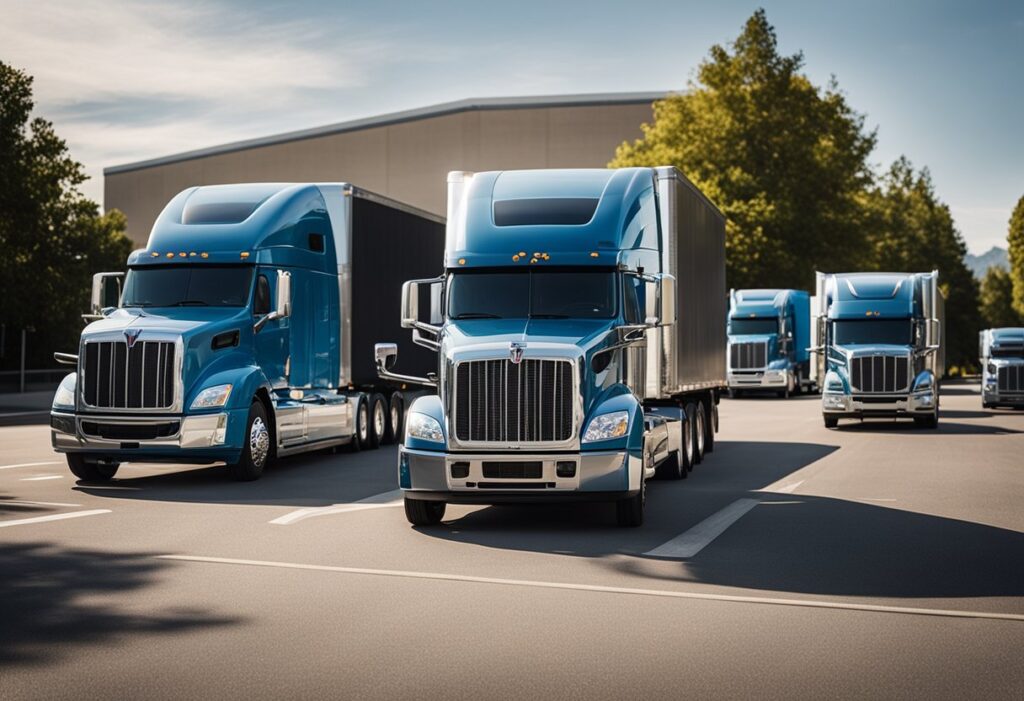Obtaining a California Motor Carrier Permit (MCP) can be a straightforward process when you follow the right steps. To operate legally as a motor carrier in California, acquiring an MCP is essential for ensuring compliance with state regulations. Understanding the requirements and the application process can save you time and prevent potential penalties.
First, know that the Motor Carrier Permit involves meeting specific criteria such as proof of financial responsibility and compliance with safety regulations. The California Department of Motor Vehicles (DMV) oversees this process and requires detailed information about your carrier operation. Having all necessary documents ready beforehand can streamline your application experience.
They should also be aware that maintaining an active MCP requires adherence to ongoing responsibilities. Regularly updating insurance information and staying compliant with safety inspections are crucial aspects. This diligence not only preserves your permit status but also contributes to a safer road environment for everyone.
Understanding the Motor Carrier Permit
The Motor Carrier Permit (MCP) is a document required for the legal operation of commercial vehicles in California. It ensures that carriers comply with safety regulations and financial responsibility requirements.
Eligibility Criteria for MCP
To be eligible for the Motor Carrier Permit (MCP), carriers must meet specific criteria. They must have a valid California Carrier Identification (CA#) number from the Department of Motor Vehicles (DMV). They also need proof of insurance that meets the state’s minimum requirements for liability coverage, as well as a demonstrated history of compliance with safety regulations.
Applicants must provide a valid Employer Identification Number (EIN) or Social Security Number (SSN) for individual owners. They must also ensure compliance with worker’s compensation insurance requirements if they have employees. Lastly, they should not have any outstanding fines or penalties from the DMV or other regulating bodies.
Types of Motor Carrier Permits
California issues different types of Motor Carrier Permits (MCPs) to cater to various commercial vehicle operations. The Private Carrier Permit is for those transporting their own goods. In contrast, the For-Hire Carrier Permit is required for carriers transporting goods for compensation.
Each permit type has different requirements, such as specific financial responsibility levels. For example, for-hire carriers usually need higher liability insurance coverage compared to private carriers. There are also special permits for different vehicle types and sizes, such as Hazardous Materials Permits for transporting dangerous goods.
Each permit type aims to address specific operational needs and compliance standards, ensuring safety and regulatory adherence across all commercial vehicle operations in the state.
The Application Process
Securing a California Motor Carrier Permit involves gathering necessary documentation, submitting the application, and awaiting review and approval. Each step requires attention to detail to ensure compliance with state regulations.
Preparing Required Documentation
Applicants must collect several key documents before beginning the process. Proof of insurance is necessary, and the insurance must meet California state requirements for commercial vehicles.
A Carrier Identification Number (CA Number) is also mandatory and can be obtained from the California Department of Motor Vehicles (DMV). Additionally, carriers need to provide details about their business structure such as LLC, corporation, or sole proprietorship.
Submitting Your Application
The application can be submitted online through the California DMV website. It is vital to fill out the Motor Carrier Permit Application form (MC-716 M) accurately.
After completing the form, you must submit any required payments. Fees vary based on the type and size of the operation. Online submission is typically faster, but mail-in options are available.
Should there be any missing information or discrepancies, the DMV will reach out for clarification. Upon approval, the carrier will receive their permit, allowing them to legally operate within California.


